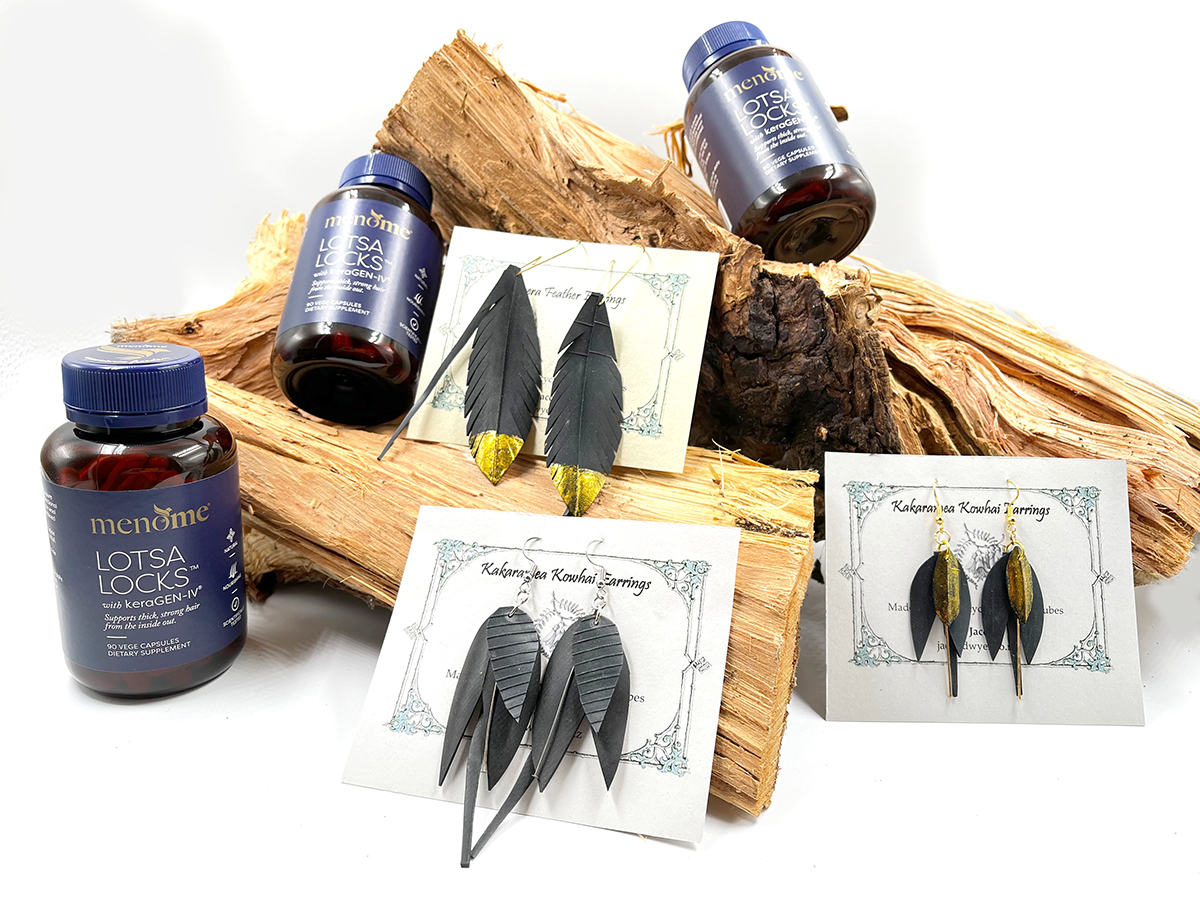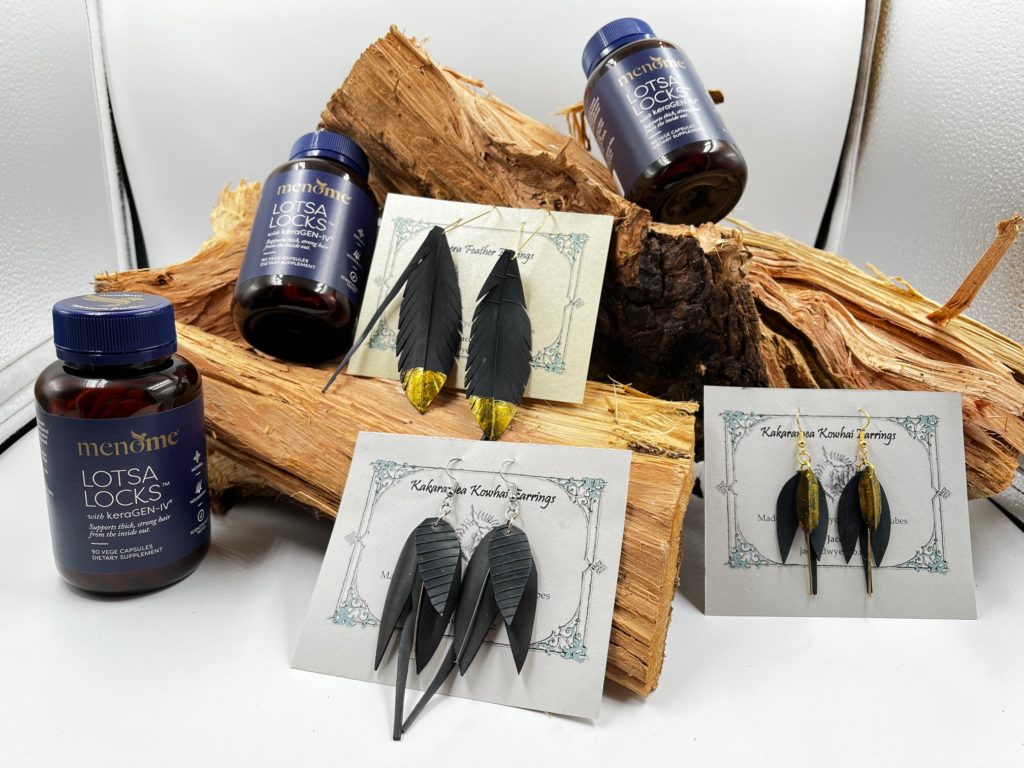To pass time while recovering from cancer, Jacq Dwyer started making earrings out of recycled bicycle tyres. Read her story here.

We have three prizes to giveaway.
Purchase 40+, 55+, or LotsaLocks™ during the promotion period (22 December 2021 – 22 January 2022) and you’ll go in the draw to win 1 x pair of earrings and 1 x LotsaLocks™.






